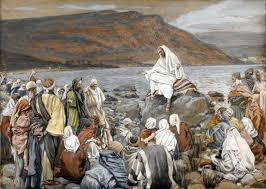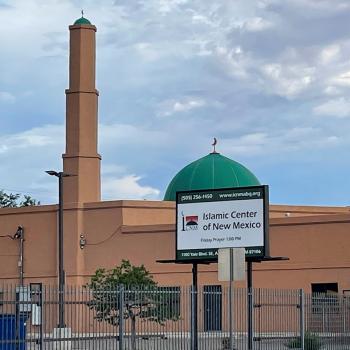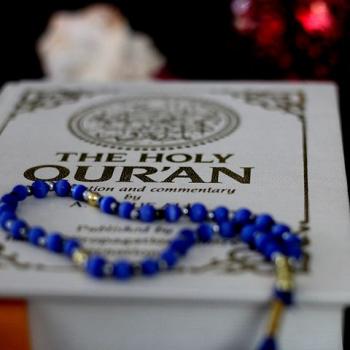 As interfaith workers, we feel good about ourselves, promoting peace and harmony among people from various faith traditions. We often nod in agreement and leave home feeling fulfilled but is preaching to the choir the purpose of the interfaith dialogue? When should we start to engage with people who don’t think like us and may have a totally different perspective? These difficult conversations may pave the way for a successful interfaith dialogue.
As interfaith workers, we feel good about ourselves, promoting peace and harmony among people from various faith traditions. We often nod in agreement and leave home feeling fulfilled but is preaching to the choir the purpose of the interfaith dialogue? When should we start to engage with people who don’t think like us and may have a totally different perspective? These difficult conversations may pave the way for a successful interfaith dialogue.

During interfaith gatherings and presentations, I often find myself talking to the people who think alike. We gather to highlight and cherish our similarities. We often point out, especially during conversations between the people from the three Abrahamic faiths- Jews, Christians and Muslims, that we worship the same God and how we cherish the common values. It is indeed very uplifting and highlights our common bonds. Indeed it is very important to continue to review our shared values and how we can work together to build bridges. After all, we all belong to the family of Abraham.
I drive inspiration from this verse from the Qur’an that I have shared numerous times during presentations and interfaith conversations.
And do not argue with the people of the Book [a common reference to Jews and Christians] except by what is best (in the best manner), except those of them who act unjustly, and say: We believe in that which has been revealed to us and revealed to you, and our God and your God is One (same), and to Him do we submit. The Qur’an 29:46
I drive home two key messages from this verse: Firstly when we dialogue, we need to dialogue in a civil manner, in the best way possible. Secondly, we should draw attention to our similarities- that we worship and submit to the same God and that we believe in what was revealed to ‘you’- i.e (Torah and the Gospel). That indeed provides a great platform to build upon.
Once we have built that relationship based on our commonalities and mutual respect, we can then put our faith in action to do the common good such as establishing homeless shelters, helping the needy families in our communities regardless of their faith and so on.
All of this should make us feel good.
As important as the above work is, and as good as we feel doing this work, there is still one thing often missing from the interfaith work: that of reaching out to the folks who are on the other side of the fence. We tend to avoid conversations with them, perhaps because we know these are going to be very difficult conversations.
The interfaith workers need to step out of our comfort zones and reach out to the folks who still harbor (at times, very) negative feelings towards the people of the other faith(s).
And yes, these are going to be difficult conversations. We need to use the same principles we use when in a dialogue with people who are open to it: mutual respect, staying civil and trying to touch the hearts (and hopefully to open them), and not imposing our own thoughts. After all, interfaith dialogue is not about telling who is right or wrong. It is not about necessarily accepting each others’ point of views. It is not about ‘converting’ them. It is about opening our minds and hearts to each other and how we can cherish our diversity and common values to build bridges and promote harmony among our communities.
The best way to do initiate these difficult conversations is to actually talk about this at our own congregations. We realize that the representatives of each faith and congregation in any given interfaith program do see the virtues of such dialogue. We assume that the entire congregation thinks the same way. For example, my interfaith council has over 110 congregations. The elected council has 27 representatives from the various faith traditions. However it would be naïve to think that our entire congregation thinks the way we do.

Therefore my recommendation is to start these difficult conversations at our own mosque, synagogue, church or temple. I am sure you know folks within your own organization who have extreme views and/or don’t have the same cozy feelings you do towards people of other faith. It is our job to reach out to them since we tend to know them better than most, better than the ‘stranger’ who visits your facility and ‘tries to talk you into it’. After all we know best what our own faith teaches us about how we see and treat the ‘others’. A Christian talking to other Christians about Jews and Muslims is more likely to open some hearts than, say a Jew or a Muslim might. The same goes for a Muslim talking to his/her fellow Muslims about people of other faiths. This indeed the model used by Abrahamic Alliance International, an interfaith organization based in San Francisco bay area, led by my good friend, Rod Cardoza.
In other words, the intra-faith dialogue is critical to the success of inter-faith dialogue. So let’s begin that journey, which no doubt will have many bumps. But unless we take that road, we won’t get there.











